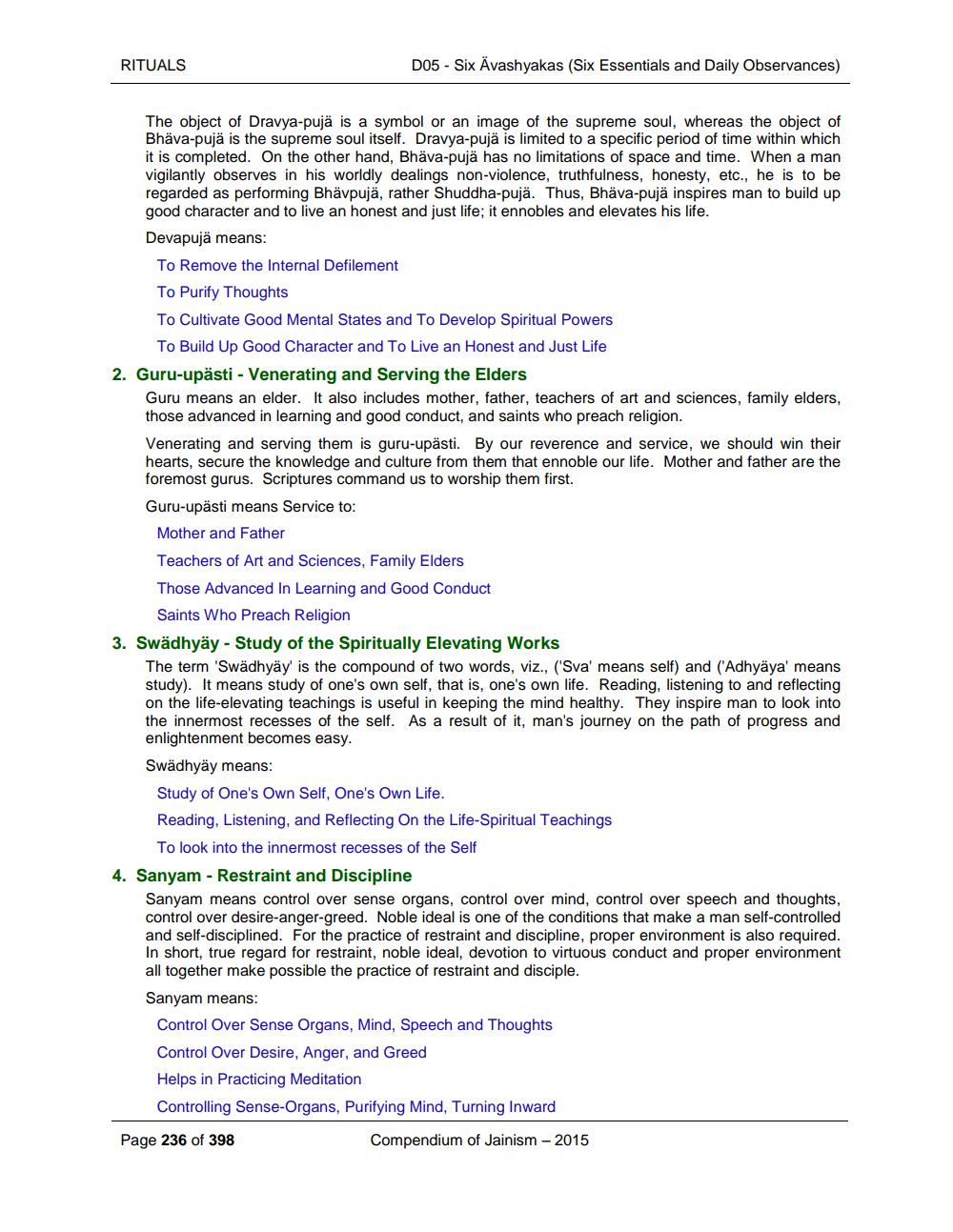________________
RITUALS
D05 - Six Ävashyakas (Six Essentials and Daily Observances)
The object of Dravya-pujä is a symbol or an image of the supreme soul, whereas the object of Bhäva-pujä is the supreme soul itself. Dravya-pujä is limited to a specific period of time within which it is completed. On the other hand, Bhäva-pujä has no limitations of space and time. When a man vigilantly observes in his worldly dealings non-violence, truthfulness, honesty, etc., he is to be regarded as performing Bhävpujä, rather Shuddha-pujä. Thus, Bhäva-pujä inspires man to build up good character and to live an honest and just life; it ennobles and elevates his life.
Devapujä means:
To Remove the Internal Defilement
To Purify Thoughts
To Cultivate Good Mental States and To Develop Spiritual Powers
To Build Up Good Character and To Live an Honest and Just Life
2. Guru-upästi - Venerating and Serving the Elders
Guru means an elder. It also includes mother, father, teachers of art and sciences, family elders, those advanced in learning and good conduct, and saints who preach religion.
Venerating and serving them is guru-upästi. By our reverence and service, we should win their hearts, secure the knowledge and culture from them that ennoble our life. Mother and father are the foremost gurus. Scriptures command us to worship them first.
Guru-upästi means Service to:
Mother and Father
Teachers of Art and Sciences, Family Elders
Those Advanced In Learning and Good Conduct
Saints Who Preach Religion
3. Swadhyay Study of the Spiritually Elevating Works
The term 'Swädhyäy' is the compound of two words, viz., ('Sva' means self) and ('Adhyaya' means study). It means study of one's own self, that is, one's own life. Reading, listening to and reflecting on the life-elevating teachings is useful in keeping the mind healthy. They inspire man to look into the innermost recesses of the self. As a result of it, man's journey on the path of progress and enlightenment becomes easy.
Swädhyay means:
Study of One's Own Self, One's Own Life.
Reading, Listening, and Reflecting On the Life-Spiritual Teachings
To look into the innermost recesses of the Self
4. Sanyam Restraint and Discipline
Sanyam means control over sense organs, control over mind, control over speech and thoughts, control over desire-anger-greed. Noble ideal is one of the conditions that make a man self-controlled and self-disciplined. For the practice of restraint and discipline, proper environment is also required. In short, true regard for restraint, noble ideal, devotion to virtuous conduct and proper environment all together make possible the practice of restraint and disciple.
Sanyam means:
Control Over Sense Organs, Mind, Speech and Thoughts
Control Over Desire, Anger, and Greed
Helps in Practicing Meditation
Controlling Sense-Organs, Purifying Mind, Turning Inward
Page 236 of 398
Compendium of Jainism - 2015




